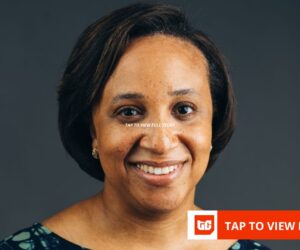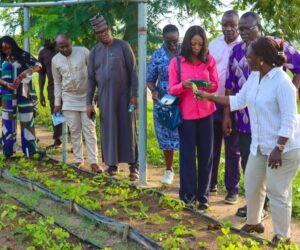By Emmanuel Yashim, News Agency of Nigeria (NAN)
The 2025 International Men’s Day was marked globally on Nov. 19 to, once again, awaken societal consciousness to the issues facing men.
The theme of 2025 Men’s Day, “Celebrating Men and Boys”, resonates with many Nigerian men, who strive to balance the heavy, often invisible load of expectation as providers, protectors, fathers and community leaders.
The celebration comes with the emphasis on encouraging healthy, happy lifestyles for men and boys worldwide.
Beyond the public bravado, the day presents an urgent reminder that the pressures men face can damage health, family life and social cohesion unless addressed by communities and policy alike.
International Men’s Day celebrates the positive values men and boys bring to families and communities while raising awareness about men’s health and wellbeing.
The global campaign urges societies to recognise male role models and to push conversations about mental and physical health into the open.
For millions of men in Nigeria, the first and most immediate role is that of breadwinner.
Chronic economic strain – from inflation to unemployment and erratic incomes in the informal sector – leaves many men feeling the daily pressure of having to put food on the table, pay school fees, and keep a home together.
That pressure is not abstract; it translates into sleepless nights, frayed tempers and in some tragic cases, a sense of hopelessness that allies with other risk factors for self-harm.
Speaking with the News Agency of Nigeria (NAN), a U.S.-based gospel artiste and philanthropist, Pastor Otasowie Ehanire, provided some intuitions.
“As we celebrate International Men’s Day, it is essential to delve into the theme that addresses the expectations men have in various roles throughout their lives.
“This day is an invitation to reflect on what husbands should reasonably expect from their wives and partners in their journey of shared life.
“Open communication, respect, and emotional support are foundational elements that can enhance their relationship, fostering an environment where both partners feel valued and heard.”
Ehanire said that as fathers, men often had particular hopes regarding their children’s behaviour and the type of relationship they cultivated.
“Children look to their fathers for guidance, support, and encouragement, and in return, fathers expect loyalty, understanding, and a willingness to learn from their experiences,” he said.
Mental-health advocates say male silence worsens the problem.
Dr Olugbenga Coker, a psychologist at Counselling Therapy and Rehabilitation Services, spoke during a Lagos sensitisation event on men’s mental health.
“The societal expectation that men should be strong and stoic has led to a culture of silence, where men struggle with mental health issues in secret,” he said.
Coker warned that the inability to be vulnerable is a primary indicator of deeper distress.
He, therefore, urged men to redefine strength as the willingness to seek help.
Those warnings have global resonance.
The World Health Organisation (WHO) reports that hundreds of thousands of people die by suicide every year and that men account for a substantial share of those deaths; for many countries, male suicide rates outpace female rates by wide margins.
The WHO’s data underlines that suicide is a major public-health issue, particularly among young people, and that stigma and lack of services leave many at risk.
“Men commit suicide one, because they do not have work that can put food on the table; two, marital issues can contribute to it too if one ventures into a bad marital relationship,” Bassey Emmanuel, a civil servant, thinks.
The family role of men in Nigeria is situated at the intersection of tradition and modern economic realities.
As husbands and heads of households, men frequently navigate expectations of authority, financial provision, and moral leadership – roles that are lauded in public but often unaccompanied by support systems in private.
Interviews across urban and semi-urban communities reveal men juggling precarious employment, long commutes, and the emotional labour of family life while often having few safe spaces to talk about their anxieties.
Fatherhood, meanwhile, carries both joy and acute responsibility. Fathers interviewed during community roundtables have spoken of a transformation – deeper patience, tighter budgeting, and a renewed sense of legacy.
A few fathers also reported experiencing pressure to suppress doubts about their parenting or to ignore their own needs lest they appear weak.
Community commentators have called for policies that support parenting – such as flexible work arrangements and mental-health services targeted at men – as a way to strengthen families and protect children.
Relational stress is another frequent trigger for male distress.
Domestic strains — marital breakdown, accusations, financial conflict – are commonly cited by men who feel cornered and unsupported.
In public conversations around International Men’s Day and related events, some men describe feeling judged rather than helped when they show vulnerability.
Mental health counsellors argue that families and community leaders can lower the risk of crisis by learning to listen and by normalising help-seeking for men.
Dennis Agbeti, a mental health counsellor, told Africanews that men should be made to understand that they deserve to be cared for and also deserve to take care of themselves.
He added that men need to be taught how to regulate their emotional commitments.
Mrs Abiemwense Moru, a media professional based in Abuja, described fathers as “truly the unsung heroes, often working behind the scenes to provide for their families.
“They are the ones out there braving the sun, running from pillar to post, to make ends meet, and putting food on the table at home.
“It is time we acknowledge their struggles and silent pains, which often go unnoticed.
“Men deserve to be celebrated every day, not just on International Men’s Day,” she said.
Beyond the domestic sphere, men who carry leadership responsibilities – as religious, civic or business leaders – face unique scrutiny.
Leaders are expected to provide clear direction during crises, to embody moral standards and to bear the burden of decision-making.
That expectation can isolate them professionally and personally.
“To truly elevate the happiness of men in these multifaceted roles, it is vital to promote a culture that values open dialogue, empathy, and respect.
“Celebrating their achievements, acknowledging their efforts, and ensuring men feel appreciated are all key to fostering a more supportive environment.
“Ultimately, International Men’s Day serves as a period to consider these critical aspects and to advocate for a world where men can flourish in their relationships as husbands, fathers, and leaders,” Ehanire added.
In spite of the challenges, advocates and health professionals point to practical, scalable responses.
First, breaking the taboo around men’s emotional health through training programmes, community dialogues and media campaigns that model vulnerability can reduce stigma.
Organisations such as “Mindfully with Tunmise” and similar grassroots initiatives have run sensitisation programmes geared toward men, teaching stress-management techniques and promoting peer support.
Second, bolstering access to mental-health services and tailoring them to male help-seeking habits matters; men are less likely to use conventional counselling if spaces feel stigmatising; community-based options, male-led support groups and confidential helplines can bridge that gap.
Third, economic and social policies that reduce strain on families – from job creation and skills training to family leave policies – would alleviate the chronic stressors that underlie many crises.
There is also a cultural dimension.
Across many Nigerian communities, a reimagined masculinity is emerging: one that values emotional intelligence alongside courage, that prizes caregiving as much as breadwinning.
Voices in civil society and the faith community have started to amplify messages that fathers and husbands are not weakened by seeking help, but strengthened by it.
This cultural shift is slow, but measurable in forums where men share their struggles and learn new ways to parent and lead without reverting to damaging stereotypes.
As the International Men’s Day is observed this year, the call is both simple and urgent: recognise men’s contributions and respond to their vulnerabilities.
Glory Akpan, a young woman with two siblings, made a useful submission.
“The home is where the men should find peace – peace of the mind.
“So, their wives need to be able to ensure that that peaceful environment exists at home,” she said.
For husbands, fathers, and leaders across Nigeria, celebrating men is beyond applause – it means practical support, accessible services, and cultural space to be human.(NANFeatures)
***If used, please credit the writer and the News Agency of Nigeria.








